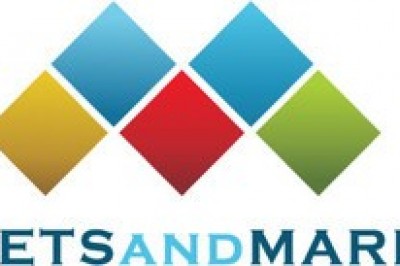Introduction to Conflicts of Interest for NEDsUnderstanding the Role of a Non-Executive Director (NED)
Non-Executive Directors (NEDs) play a crucial role in corporate governance, providing independent oversight and strategic guidance to a company's board. Unlike executive directors, NEDs are not involved in the day-to-day operations of the business. Their primary responsibilities include monitoring executive management, ensuring accountability, and safeguarding shareholders' interests. This unique position requires NEDs to maintain a high level of objectivity and independence, which can be challenged by conflicts of interest.
Defining Conflicts of Interest
A conflict of interest arises when a NED's personal or external interests potentially interfere with their ability to act impartially and in the best interests of the company. These conflicts can compromise the NED's objectivity, leading to decisions that may not align with the company's goals or shareholder interests. Conflicts of interest can be actual, perceived, or potential, and it is essential for NEDs to recognize and address them proactively.
Types of Conflicts of Interest Financial Conflicts
Financial conflicts occur when a NED has a financial interest in a company or transaction that could influence their decision-making. This could include holding shares in the company, having a financial stake in a competitor, or receiving financial benefits from a third party related to the company.
Personal Relationships
Personal relationships can also lead to conflicts of interest. If a NED has a close relationship with an executive, employee, or business partner, it may affect their ability to remain impartial. These relationships can include family ties, friendships, or other personal connections.
Professional Conflicts
Professional conflicts arise when a NED's other business interests or roles conflict with their duties to the company. This could involve serving on multiple boards, having business dealings with the company, or being involved in industries that compete with the company.
The Impact of Conflicts of Interest
Conflicts of interest can have significant implications for a company. They can undermine trust in the board's decision-making, damage the company's reputation, and lead to legal or regulatory issues. For NEDs, failing to manage conflicts of interest can result in personal liability and damage to their professional reputation.
Legal and Regulatory Framework
NEDs must navigate a complex legal and regulatory landscape designed to manage conflicts of interest. This includes corporate governance codes, securities regulations, and company-specific policies. These frameworks require NEDs to disclose conflicts of interest, abstain from related decision-making, and ensure transparency in their dealings. Understanding and adhering to these requirements is essential for maintaining the integrity of the board and protecting the interests of the company and its stakeholders.
Understanding the Role of a Non-Executive Director Definition and Purpose
A Non-Executive Director (NED) is a member of a company's board of directors who does not engage in the day-to-day management of the organization. Their primary purpose is to provide independent oversight and contribute to the development of the company's strategy. NEDs bring an external perspective to the board, which is crucial for ensuring that the company remains aligned with its long-term goals and adheres to best practices in governance.
Key Responsibilities Strategic Guidance
NEDs play a critical role in shaping the strategic direction of the company. They collaborate with executive directors to evaluate and refine the company's strategic plans, ensuring that they are robust and aligned with the organization's objectives. Their external perspective allows them to challenge assumptions and provide insights that may not be apparent to those involved in the daily operations.
Oversight and Accountability
One of the core responsibilities of a NED is to ensure that the company operates within the legal and regulatory framework. They are tasked with monitoring the performance of the executive team and holding them accountable for their actions. This involves scrutinizing financial reports, assessing risk management practices, and ensuring that the company adheres to ethical standards.
Risk Management
NEDs are instrumental in identifying and mitigating risks that could impact the company. They work closely with the board to develop and implement risk management strategies, ensuring that potential threats are addressed proactively. Their independent status allows them to objectively assess risks and recommend appropriate measures to safeguard the company's interests.
Stakeholder Engagement
NEDs serve as a bridge between the company and its stakeholders, including shareholders, employees, customers, and the community. They ensure that the board considers the interests of all stakeholders in its decision-making processes. By fostering transparent communication and building trust, NEDs help maintain positive relationships with stakeholders and enhance the company's reputation.
Skills and Qualities Independence and Objectivity
A key attribute of a successful NED is the ability to remain independent and objective. This means being able to make decisions based on the best interests of the company, free from personal biases or external influences. Independence is crucial for providing unbiased advice and ensuring that the board's decisions are well-rounded and balanced.
Industry Knowledge and Expertise
NEDs are often selected for their extensive experience and expertise in a particular industry. This knowledge allows them to provide valuable insights and guidance on industry-specific challenges and opportunities. Their expertise helps the board make informed decisions and navigate complex issues effectively.
Strong Communication Skills
Effective communication is essential for NEDs, as they must articulate their views clearly and persuasively. They need to engage in constructive dialogue with other board members, executives, and stakeholders, often acting as mediators in discussions. Strong communication skills enable NEDs to influence decision-making and foster a collaborative board environment.
Ethical Integrity
NEDs are expected to uphold the highest standards of ethical integrity. They must demonstrate honesty, transparency, and fairness in all their dealings. This commitment to ethical conduct is vital for maintaining the trust of stakeholders and ensuring that the company operates with integrity.
Challenges Faced by NEDs Balancing Independence with Collaboration
While NEDs must maintain their independence, they also need to work collaboratively with the executive team and other board members. Striking the right balance between independence and collaboration can be challenging, as it requires NEDs to assert their views while remaining open to others' perspectives.
Managing Conflicts of Interest
NEDs may encounter situations where their personal or professional interests conflict with those of the company. Managing these conflicts is crucial to maintaining their objectivity and ensuring that their decisions are in the best interests of the organization. NEDs must be vigilant in identifying potential conflicts and take appropriate steps to address them.
Keeping Up with Regulatory Changes
The regulatory landscape is constantly evolving, and NEDs must stay informed about changes that could impact the company. This requires a commitment to continuous learning and staying abreast of industry developments. NEDs must ensure that the company remains compliant with all relevant regulations and adapts to new requirements as they arise.
Identifying Potential Conflicts of Interest Understanding Conflicts of Interest
Conflicts of interest occur when a Non-Executive Director (NED) has competing interests or loyalties that could potentially influence their ability to make impartial decisions. These conflicts can arise from personal, financial, or professional relationships that may interfere with the NED's duty to act in the best interest of the organization.
Types of Conflicts of Interest Financial Conflicts
Financial conflicts are among the most common and can arise when a NED has a financial interest in a company that does business with the organization they serve. This could include owning stock, receiving compensation, or having a financial stake in a competitor or supplier.
Personal Relationships
Personal relationships can also lead to conflicts of interest. This includes situations where a NED has a close relationship with someone who is employed by or has a significant interest in the organization. These relationships can cloud judgment and lead to biased decision-making.
Professional Conflicts
Professional conflicts occur when a NED's duties to another organization or their own business interests conflict with their responsibilities to the board. This can include serving on multiple boards where the interests of the organizations may not align.
Identifying Red Flags Dual Roles
Holding dual roles within the organization or in related entities can create conflicts. NEDs should be vigilant about situations where their responsibilities overlap, potentially leading to divided loyalties.
Insider Information
Access to insider information can create conflicts, especially if a NED is in a position to use this information for personal gain or to benefit another organization with which they are affiliated.
Gifts and Hospitality
Receiving gifts or hospitality from stakeholders can create a perception of bias or favoritism. NEDs should be cautious about accepting anything that could be seen as an attempt to influence their decision-making.
Conducting a Conflict of Interest Assessment Self-Assessment
NEDs should regularly conduct self-assessments to identify any potential conflicts. This involves reviewing their financial interests, personal relationships, and professional commitments to ensure they do not interfere with their board responsibilities.
Disclosure
Transparency is key in managing conflicts of interest. NEDs should disclose any potential conflicts to the board as soon as they are identified. This allows the board to assess the situation and take appropriate action to mitigate any risks.
Seeking External Advice
In complex situations, seeking external advice from legal or ethical experts can help NEDs identify and manage potential conflicts. This ensures that all potential issues are addressed comprehensively and objectively.
Legal and Ethical Frameworks Governing NEDs Regulatory Requirements Corporate Governance Codes
Corporate governance codes are essential in setting the standards for the behavior and responsibilities of Non-Executive Directors (NEDs). These codes often emphasize the importance of independence, accountability, and transparency. They provide guidelines on how NEDs should conduct themselves to avoid conflicts of interest and ensure that they act in the best interests of the company and its stakeholders. Examples include the UK Corporate Governance Code and the Sarbanes-Oxley Act in the United States, which outline specific duties and responsibilities for NEDs.
Securities Laws
Securities laws play a crucial role in governing the actions of NEDs, particularly in publicly listed companies. These laws are designed to protect investors and ensure fair and efficient markets. NEDs must comply with regulations regarding insider trading, disclosure of material information, and other securities-related activities. Violations can lead to severe penalties, including fines and imprisonment, highlighting the importance of understanding and adhering to these legal requirements.
Fiduciary DutiesDuty of Care
The duty of care requires NEDs to act with the same level of care that a reasonably prudent person would exercise in a similar position. This involves being diligent in understanding the company's business, attending board meetings, and making informed decisions. NEDs must ensure they have sufficient information to make decisions and should seek expert advice when necessary to fulfill this duty effectively.
Duty of Loyalty
The duty of loyalty mandates that NEDs prioritize the interests of the company and its shareholders above their own personal interests. This duty is critical in preventing conflicts of interest and ensuring that NEDs do not exploit their position for personal gain. NEDs must disclose any potential conflicts and recuse themselves from decisions where their impartiality could be compromised.
Ethical Standards Independence and Objectivity
Independence and objectivity are fundamental ethical principles for NEDs. They must maintain an unbiased perspective and avoid any relationships or situations that could impair their judgment. This includes financial ties, familial relationships, or other associations that could influence their decision-making. Upholding independence ensures that NEDs can provide effective oversight and challenge executive management when necessary.
Confidentiality
Confidentiality is a key ethical obligation for NEDs, as they are often privy to sensitive information about the company. NEDs must protect this information and ensure it is not disclosed improperly. Breaches of confidentiality can damage the company's reputation and competitive position, making it imperative for NEDs to handle information with care and discretion.
Conflict of Interest Policies Disclosure Requirements
NEDs are required to disclose any potential conflicts of interest to the board. This transparency allows the board to assess the situation and determine the appropriate course of action. Disclosure requirements are often outlined in corporate governance codes and company policies, ensuring that NEDs are aware of their obligations to report conflicts.
Recusal Procedures
Recusal procedures are established to manage conflicts of interest effectively. When a conflict arises, NEDs may need to recuse themselves from discussions and decisions related to the matter. This ensures that the board's decisions are made without undue influence and that the integrity of the decision-making process is maintained. Recusal procedures are an essential component of conflict of interest policies, providing a clear framework for addressing potential issues.
Strategies for Maintaining Objectivity Understanding the Role and Responsibilities
As a Non-Executive Director (NED), it is crucial to have a clear understanding of your role and responsibilities. This involves recognizing the boundaries of your position and ensuring that you are not overstepping into executive functions. By maintaining a clear distinction between governance and management, you can better focus on providing independent oversight and strategic guidance. Familiarize yourself with the company's policies, governance framework, and the legal obligations associated with your role to ensure that you are well-equipped to maintain objectivity.
Identifying Potential Conflicts of Interest
Proactively identifying potential conflicts of interest is essential for maintaining objectivity. This involves regularly reviewing your personal and professional relationships, financial interests, and any other affiliations that may influence your decision-making. By being vigilant and transparent about these potential conflicts, you can take steps to mitigate their impact on your objectivity. Establish a routine for assessing these factors and be prepared to disclose any conflicts to the board as soon as they arise.
Establishing Clear Policies and Procedures
Having clear policies and procedures in place is vital for managing conflicts of interest effectively. Work with the board to develop a comprehensive conflict of interest policy that outlines the process for identifying, disclosing, and managing conflicts. This policy should include guidelines for recusal from discussions or decisions where a conflict exists. Ensure that all board members are familiar with these procedures and that they are consistently applied to maintain the integrity of the board's decision-making process.
Encouraging Open Communication
Fostering an environment of open communication is key to maintaining objectivity. Encourage board members to voice their concerns and opinions freely, and ensure that all perspectives are considered in the decision-making process. By promoting a culture of transparency and inclusivity, you can help prevent conflicts of interest from being overlooked or ignored. Regularly engage in open discussions about potential conflicts and encourage board members to challenge assumptions and biases. Find out more today.
Seeking External Advice
When faced with complex or sensitive conflicts of interest, seeking external advice can be invaluable. Engaging independent advisors or consultants can provide an objective perspective and help ensure that decisions are made in the best interest of the company. This external input can also serve as a check on the board's decision-making process, helping to identify any unconscious biases or overlooked conflicts. Be open to seeking external advice when necessary and consider it a valuable tool for maintaining objectivity.
Regular Training and Development
Continuous training and development are essential for maintaining objectivity as a NED. Participate in regular training sessions and workshops to stay informed about best practices in corporate governance and conflict of interest management. This ongoing education will help you remain aware of emerging issues and equip you with the skills needed to navigate complex situations. Encourage the board to prioritize training and development as part of its commitment to maintaining high standards of governance.
Self-Reflection and Accountability
Engage in regular self-reflection to assess your own objectivity and potential biases. Consider how your personal experiences, beliefs, and relationships may influence your decision-making. By being aware of these factors, you can take steps to mitigate their impact and ensure that you are acting in the best interest of the company. Hold yourself accountable for maintaining objectivity and encourage your fellow board members to do the same. This commitment to self-awareness and accountability is crucial for fostering a culture of integrity and transparency.
Case Studies: Lessons Learned from Real-World ScenariosHigh-Profile Corporate Governance FailureBackground
In this case study, we examine a well-known corporation that faced a significant governance crisis due to conflicts of interest among its board members. The company, a major player in the energy sector, was embroiled in a scandal that led to financial losses and reputational damage.
Conflict of Interest
The conflict arose when several non-executive directors (NEDs) had financial ties to a supplier that was awarded a lucrative contract. These ties were not disclosed, leading to questions about the objectivity of the board's decision-making process.
Lessons Learned
- Transparency is Crucial: This case highlights the importance of full disclosure of any potential conflicts of interest. NEDs must be proactive in declaring any relationships that could influence their judgment.
- Robust Policies: Companies should have clear policies and procedures in place to manage conflicts of interest. This includes regular training and updates for board members.
- Independent Oversight: The presence of an independent committee to review and approve significant contracts can help mitigate risks associated with conflicts of interest.
A leading financial institution faced an ethical dilemma when a NED was found to have a personal investment in a competitor. This situation raised concerns about the NED's ability to remain impartial in strategic discussions.
Conflict of Interest
The NED's investment was not initially disclosed, and it came to light during a routine audit. The board was forced to address the potential bias in strategic decisions that could favor the competitor.
Lessons Learned
- Regular Audits: Conducting regular audits can help uncover undisclosed conflicts of interest. This proactive approach ensures that potential issues are identified and addressed promptly.
- Clear Guidelines: Establishing clear guidelines for personal investments by NEDs can prevent conflicts of interest. These guidelines should be communicated and enforced consistently.
- Recusal Procedures: Implementing procedures for NEDs to recuse themselves from discussions where they have a conflict of interest is essential for maintaining objectivity.
A technology company faced a boardroom challenge when a NED was found to be consulting for a firm that was a direct competitor. This dual role raised questions about the NED's loyalty and the confidentiality of sensitive information.
Conflict of Interest
The NED's consulting role was not disclosed to the board, leading to concerns about the potential leakage of proprietary information and strategic plans.
Lessons Learned
- Disclosure Requirements: NEDs should be required to disclose all external roles and consulting engagements. This ensures that the board is aware of any potential conflicts.
- Confidentiality Agreements: Enforcing strict confidentiality agreements can protect sensitive information and prevent conflicts of interest from compromising the company's competitive position.
- Regular Reviews: Conducting regular reviews of NEDs' external engagements can help identify potential conflicts early and allow for timely intervention.
Having a well-defined conflict of interest policy is crucial for any organization. These policies should clearly outline what constitutes a conflict of interest, the procedures for disclosing potential conflicts, and the steps for resolving them. Non-Executive Directors (NEDs) should familiarize themselves with these policies to ensure they are adhering to the organization's standards. Regular training sessions can help NEDs stay updated on any changes to these policies.
Disclosure Forms
Disclosure forms are essential tools for identifying potential conflicts of interest. These forms require NEDs to declare any personal, financial, or professional interests that might conflict with their duties. By regularly updating these forms, organizations can maintain transparency and address any conflicts proactively. NEDs should ensure they complete these forms accurately and promptly.
Independent Legal Advice
Access to independent legal advice can be invaluable for NEDs when navigating complex conflicts of interest. Legal advisors can provide guidance on the implications of certain conflicts and suggest appropriate actions to mitigate them. Organizations should facilitate access to such resources, ensuring that NEDs can seek advice without any undue influence.
Board Management Software
Board management software can streamline the process of managing conflicts of interest. These platforms often include features for tracking disclosures, managing documentation, and facilitating communication among board members. By using such software, NEDs can ensure that all relevant information is easily accessible and that conflicts are managed efficiently.
Training and Workshops
Regular training sessions and workshops can equip NEDs with the knowledge and skills needed to identify and manage conflicts of interest. These sessions can cover topics such as ethical decision-making, regulatory requirements, and best practices for maintaining objectivity. By participating in these programs, NEDs can enhance their ability to navigate conflicts effectively.
Peer Support Networks
Peer support networks provide NEDs with a platform to share experiences and strategies for managing conflicts of interest. These networks can offer valuable insights and advice from individuals who have faced similar challenges. By engaging with peers, NEDs can gain new perspectives and develop more effective approaches to conflict management.
External Audits and Reviews
Conducting external audits and reviews can help organizations identify and address conflicts of interest. These assessments provide an objective evaluation of the organization's practices and can highlight areas for improvement. NEDs should advocate for regular audits to ensure that conflicts are managed transparently and effectively.
Conclusion: Upholding Integrity and Trust as a NEDThe Importance of Integrity and Trust
Integrity and trust are the cornerstones of effective governance for Non-Executive Directors (NEDs). These principles are essential in ensuring that NEDs can fulfill their roles with impartiality and dedication. Upholding integrity means adhering to ethical standards and making decisions that are in the best interest of the organization, free from personal biases or external pressures. Trust, on the other hand, is built through consistent, transparent, and honest interactions with stakeholders, including board members, shareholders, and employees.
Strategies for Maintaining IntegrityAdherence to Ethical Guidelines
NEDs must commit to a strict code of ethics that guides their decision-making processes. This involves understanding and applying the organization's ethical guidelines and industry standards. Regular training and workshops on ethics can reinforce these principles and help NEDs stay informed about emerging ethical challenges.
Transparency in Decision-Making
Being transparent about the decision-making process is crucial for maintaining integrity. NEDs should ensure that their decisions are well-documented and that the rationale behind them is clear and accessible to relevant stakeholders. This transparency helps in building trust and demonstrates a commitment to accountability.
Building and Sustaining TrustOpen Communication
Effective communication is vital for building trust. NEDs should engage in open dialogues with stakeholders, actively listen to their concerns, and provide clear and honest feedback. This approach fosters a culture of openness and mutual respect, which is essential for maintaining trust.
Consistency in Actions
Trust is reinforced when NEDs consistently align their actions with the organization's values and objectives. By demonstrating reliability and predictability in their conduct, NEDs can strengthen their credibility and the trust placed in them by stakeholders.
The Role of Continuous LearningStaying Informed
The business environment is constantly evolving, and NEDs must stay informed about new developments, trends, and regulations that may impact their organization. Continuous learning through professional development programs, industry conferences, and peer networking can enhance a NED's ability to navigate conflicts of interest effectively.
Reflective Practice
Engaging in reflective practice allows NEDs to critically assess their own performance and decision-making processes. By regularly evaluating their actions and seeking feedback, NEDs can identify areas for improvement and reinforce their commitment to integrity and trust.



































